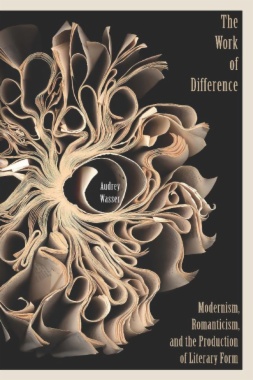The Work of Difference addresses a fundamental ontological question: What is literature? And at the heart of this question, it argues, is the problem of the new. How is it that new works or new forms are possible within the rule-governed orders of history, language use, or the social? How are new works in turn recognizable to already-existing institutions? Tracing the relationship between literature and the problem of newness back to a set of concerns first articulated in early German romanticism, this book goes on to mount a critique of romantic tendencies in contemporary criticism in order, ultimately, to develop an original theory of literary production. Along the way, it offers new readings of major modernist novels by Samuel Beckett, Marcel Proust, and Gertrude Stein.
- Cover�������������������������������
- The Work of Difference����������������������������������������������������������������������������������
- Title�������������������������������
- Copyright�������������������������������������������
- Dedication����������������������������������������������
- CONTENTS����������������������������������������
- Introduction����������������������������������������������������
- 1. Form and Fragmentation: Romantic Legacies����������������������������������������������������������������������������������������������������������������������������������������������������
- 2. The Book of the World: Form and Intent in New Criticism, Revisited�������������������������������������������������������������������������������������������������������������������������������������������������������������������������������������������������������������������������������
- 3. Tyranny of the Possible: Blanchot����������������������������������������������������������������������������������������������������������������������������
- 4. A Genesis of the New: Deleuze����������������������������������������������������������������������������������������������������������������
- 5. From Figure to Fissure: Self-Correction in Beckett’s Molloy, Malone Dies, and The Unnamable
- 6. Hyperbole in Proust’s A la recherche du temps perdu����������������������������������������������������������������������������������������������������������������������������������������������������������������������������������
- 7. “How Anything Can Be Different from What It Is”: Tautology in Stein’s The Making of Americans����������������������������������������������������������������������������������������������������������������������������������������������������������������������������������������������������������������������������������������������������������������������������������������������������������������
- Conclusion����������������������������������������������
- Appendix����������������������������������������
- Notes�������������������������������
- Bibliography����������������������������������������������������
- Index�������������������������������
- Acknowledgments�������������������������������������������������������������

